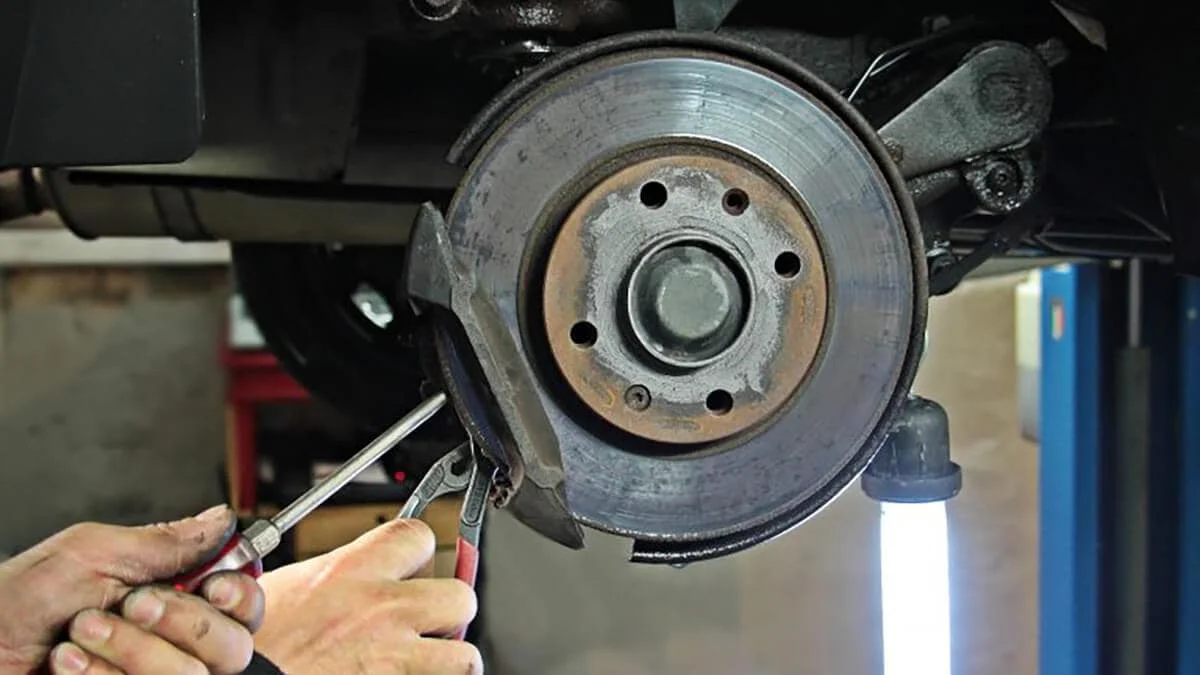Car Brakes Canterbury
 Car Brakes: Discs and Pads
Car Brakes: Discs and Pads
Checking your car brakes regularly is part of any vehicle’s preventative maintenance plan. It allows you to identify potential problems before they impact your braking abilities. As a result, you get the opportunity to react before it’s too late and ensure that your vehicle’s braking system operates at peak level. You never know when you will need to brake suddenly in an emergency situation and if your brakes are worn, it could literally mean the difference between life and death. Everyone should know how important it is to properly service your car with brakes always remaining a top priority.
Brake pads
Think about how often you apply the brakes and it becomes abundantly clear how important these car parts are. While car brakes should be replaced at about 50,000 miles, there are several factors that determine how long they will last. It all depends on the type of car you drive, where you drive, the number of passengers, your driving style and the quality of brake pads previously fitted.
The type of brake pads on your vehicle can certainly affect how long they will last. Here is a simple breakdown of the most common types of car brake pads:
- Organic brake pads are cheaper but won’t last very long
- Low metallic car brake pads are noisy with a slightly longer lifespan
- Semi-metallic car brakes are common as they have a long lifespan and are more affordable
- Ceramic brake pads last longer than any other brake pads and are more resistant to wear but they are also the most expensive
See our guide on brake pads
Brake discs
Similarly to brake pads, the lifespan of the discs on your car brakes will differ depending on the type of vehicle. Brake pads and brake discs often need to be replaced simultaneously but discs mostly outlast pads. It is common for front brake discs to get too thin which results in overheating and a loss of braking efficiency. You should replace your brake discs as soon as the thickness reaches the minimum allowed threshold which is etched on the outer disc rotor.
Remember to replace both brake discs on the same axle at the same time. This will extend the life of your braking system and allow all the safety-critical components to operate at optimum levels.
Signs your car brakes might be failing
Brakes are one of the most essential parts of any vehicle and you should check them at least once a year. But how do you know when your car brakes need replacing? There are several ways your car might tell you that it’s time to replace the brake pads or brake discs from grinding, pulsating to a spongy brake pedal. If your car does any of the following, you should arrange a FREE brake inspection at Elite Garages.
Our Bournemouth brake specialists will tell you everything you need to know about your brakes while offering dealership quality services at affordable rates. Grinding is a common sound when brake pads are worn where the noise most often comes from the brake pad being worn down to the metal caliper. While there are many reasons why brakes squeal, it commonly suggests that the brake pads have worn down.
If your car pulls to either side when applying the brakes, they are no longer evenly balanced. This is usually a sign of sticky hydraulics or a mechanical component, like a seized caliper, that prevents your car from slowing down in a straight line. When your brake pedal pulsates while applying brakes, it could indicate that the brake discs have become warped. This is usually a result of excessive heat. When car brakes start to wear, it could affect your overall performance. If pulling away feels sluggish, your brake calipers are sticking which causes your car to drive as if the brake discs were partially engaged.
A clear sign that moisture has entered the brake lines is a spongy feel when applying the brake pedal. It makes your car brakes seem unresponsive, as the moisture prevents the brake fluid from flowing through the system effectively. This is indicative of old brake fluid that needs replacing or that your brakes are worn. Most car manufacturers agree that you should change the brake fluid every two years for optimal performance.
Brake Service Canterbury
At Elite Garages we know first-hand how important a regular brake service is and the effective maintenance thereof. Our Canterbury branch is here to help where trained experts provide a FREE brake inspection looking at all aspects of your car brakes. They will identify any possible issues to help keep you safe on your journey. If you require new brakes or a brake service, we provide you with a no-obligation quote and will never do any work without your consent.
Canterbury is home to The King’s Mile, a collection of streets in and around ancient Cathedrals and the King’s School. There are countless stores and sites to visit while you wait for your brake service, including Sir John Boyes House and The Cheese Shop.


